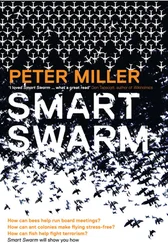They glared at me in unison; both loved to argue, and had just been starting to warm to their vitriol. I felt like an unwanted UN peacekeeper. We rode on in poisoned silence.
London was vast and sprawling. We drove down past endless alabaster Victorians before turning onto a gated side road. Its wrought-iron entrance swung open, and we passed into a street lined by buildings the size of embassies, separated by high hedges topped with barbed wire and security cameras. The BMW turned onto an elliptical driveway from which stairs led up to an ivy-wreathed monstrosity that had to encompass at least a dozen bedrooms. Several marquee cars glittered on its driveway.
A liveried servant met us at the door, took Anya’s fur coat, gave us steaming cups of coffee prepared to our personal specifications, and whisked us through chambers and passageways with ludicrously high ceilings and frighteningly expensive furnishings. The thick walls and carpets seemed to devour all noise. We ascended an elevator gated with lacy iron, and traversed another cavernous corridor before finally stopping at one of the massive mahogany doors.
“This is your room,” Jesse said. “We’ve stocked it with clothes and stuff. Use the intercom if you need anything. Don’t feel bad about asking the servants for stuff, that’s why they’re there. Chill out, have a nap, order some room service. I’ll come grab you in a bit.”
“Sure.” I looked at Anya. “Thank you.”
She made a dismissive motion. “You saved our lives.”
My room featured, among other amenities, a four-poster bed, a Bose sound system connected to a iPod Touch loaded with Jesse’s favourite music, the largest flat-screen TV I had ever seen, and a closet full of designer clothes and Fluevog shoes in my size. I showered, cleaned myself with fifty-dollar soap, donned Armani jeans and a Versace T-shirt, collapsed on the bed and closed my eyes, more mentally than physically drained.
I was finally beginning to understand that I should have been more careful about what I wished for on that long-ago day when I had decided to sacrifice everything in order to aspire to an extraordinary life. Extraordinary did not mean good, and now I was drinking from extraordinary’s firehose, drowning in its deep end. The old me would have laughed contemptuously at the notion that it was better to live in Pasadena and work at a quiet job than to ricochet from Colombian jungle to Caribbean yacht to drug lord’s dungeon to billionaire’s mansion. But all I wanted was to somehow turn back the clock.
Of course that could never happen. My old life was as dead as Ancient Rome. I understood too late that one of the defining features of a truly extraordinary life is its irreversibility. Once you have hurdled half a dozen standard deviations it is not easy to push your life back up to the peak of Gauss’s mountain.
I dozed dejected for some time, until a knock on the door roused me. Jesse.
“C’mon,” he said, “I’ll introduce you to the titan.”
I followed Jesse through Anya’s uncle’s sumptuous labyrinth, past servants like faceless shadows, into a corner room lit by two huge windows that revealed wide swathes of very expensive urban real estate. A disused easel sat in a corner; its place of honour had been usurped by an ebony table laden with MacBook Pros. Anya sat before one of them. Jesse and I sat beside her in leather swivel chairs so soft and comfortable I never wanted to get up again.
“So. Argus,” Jesse said. “You know the word panopticon ?”
I shook my head.
Anya explained: “It once meant a prison where all privacy is extinguished. Today it means London. This is the world’s surveillance capital. More than one million closed-circuit cameras in this city, millions more in the rest of the country. The UK government has recently connected all those they control into a single network called Argus, after Argus Panoptes, the titan with a hundred eyes. With it you can survey almost all of London, if you are a senior police officer or politician.”
“Big Brother’s wet dream,” Jesse said. “But we prefer two-way windows to one-way glass. So with the help of some friends, we hacked into their panopticon.”
LoTek , I thought, taking the news almost casually. My capacity for surprise appeared to have been numbed by overuse.
Anya indicated the nearest MacBook. “Without leaving this room we can look through any camera in London, or go through six weeks of archives. We’ve been amassing dossiers on politicians opposed to civil liberties. Some live very interesting lives indeed. We intend to teach them exactly how the loss of privacy can lead to the loss of liberty.”
“And you think we can use Argus to find Ortega’s drones.”
“I’m sure of it. And when we do, we will need Sophie’s override sequence from you.”
“Find them how exactly? I’m guessing his people aren’t exactly in the habit of turning to the nearest camera and shouting ‘Hi, Mom! After I kill the G8, I’m going to Disneyland!’”
“There are ways, James. Don’t underestimate us. But we need to know that the override will work. Is it just a command sent over the drones’ control channel? Is there a chance they might filter it out?”
I smiled thinly, remembering the sense of giddy triumph I had felt when my swarm hack had succeeded. “They tried that in Mexico. I found a workaround. But you need physical access to at least one of their drones.” Only identically programmed neural nets could form a swarm; we couldn’t take over their drones with one of our own.
“Why? How does it work?”
“The intra-swarm net. The one they use to communicate with each other.”
I explained the details, then used the computer nearest me to log on to Hushmail and forward the override code to Anya and Jesse.
“ Excellent ,” Anya said, with relief and something like triumph in her normally cool voice. I supposed she had been stressing out at the thought of Ortega’s unstoppable drone army. Jesse gave her a curious look, apparently as surprised as I by the sudden crack in her ice-queen armour. “Now,” she continued quickly, “all we must do is find them.”
“How?” I asked.
Jesse said, “Argus. Give me one thread and I’ll unravel their whole veil.”
“Great. What thread?”
“Your BFF Dmitri. We figure he’s been here in London sometime in the last month.”
“Maybe not. They’ve got a whole team of people. He wasn’t the one who actually trained the neural nets. But OK, maybe. So what?”
“First we need his face. We’ve assembled a series of photos, Russian hackers from his era.” Jesse indicated a minimized slideshow icon on my computer. “See if he’s in there.”
The slideshow was a motley assortment of group shots from hacker conventions, webcam screenshots, stills from surveillance cameras, and many of inexplicable provenance. One sequence appeared to be from a bear hunt. Another featured two dozen geeky-looking individuals, all dressed as Santa Claus, roaming the streets of Tokyo. I was nearing the end, and losing hope, when I finally recognized a familiar face.
“Dana,” I said sharply, and pointed at a cell-phone group shot taken in a bar called PROPAGANDA. Its neon sign was in English but all other written material was Cyrillic. “That’s her. Dmitri’s girlfriend.”
“You’re sure?” Jesse asked.
I hesitated. “Almost.” I clicked to the next shot. The same group, with some kind of canal behind them. Dmitri and Dana stood in the middle, his arm around her. “And that’s him,” I said excitedly. “What is that, Venice?”
“St. Petersburg,” Anya said.
According to its metadata photo was two years old. But hadn’t Dmitri said they had met only last year? And in Moscow, not St. Petersburg? I supposed it didn’t matter. “Great. Now what?”
Читать дальше












